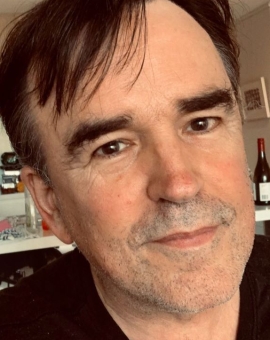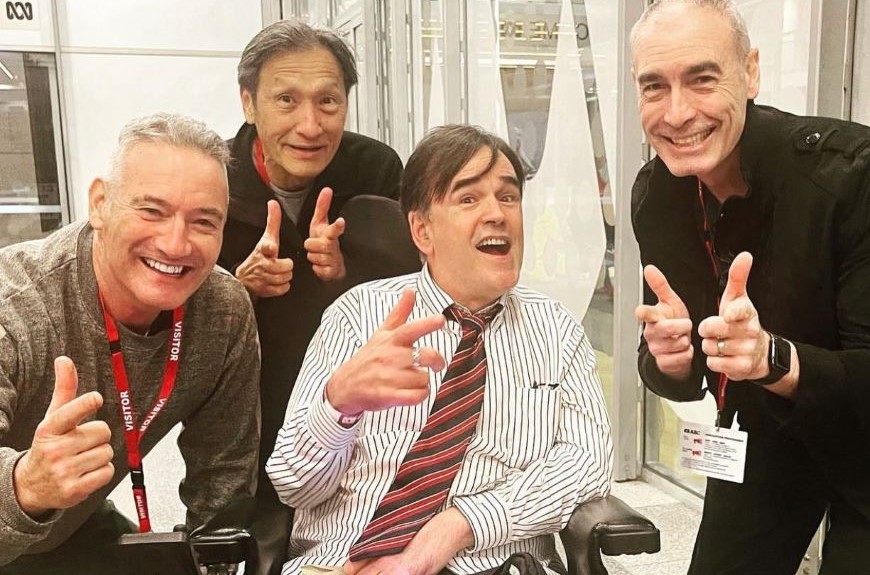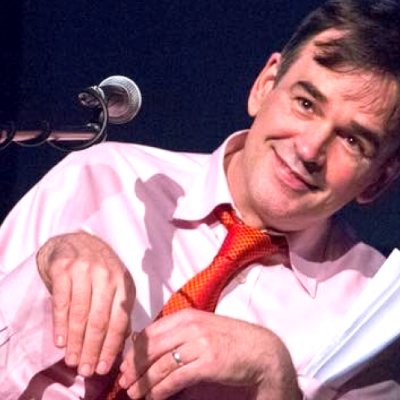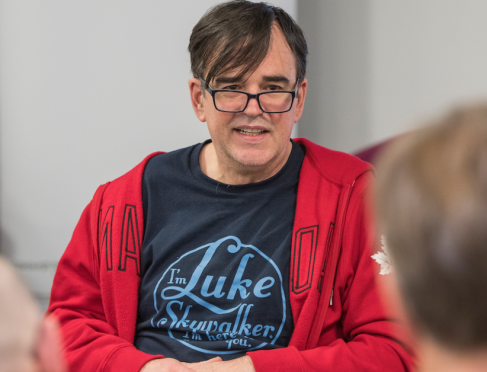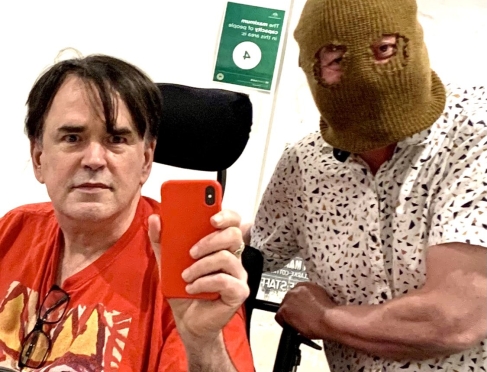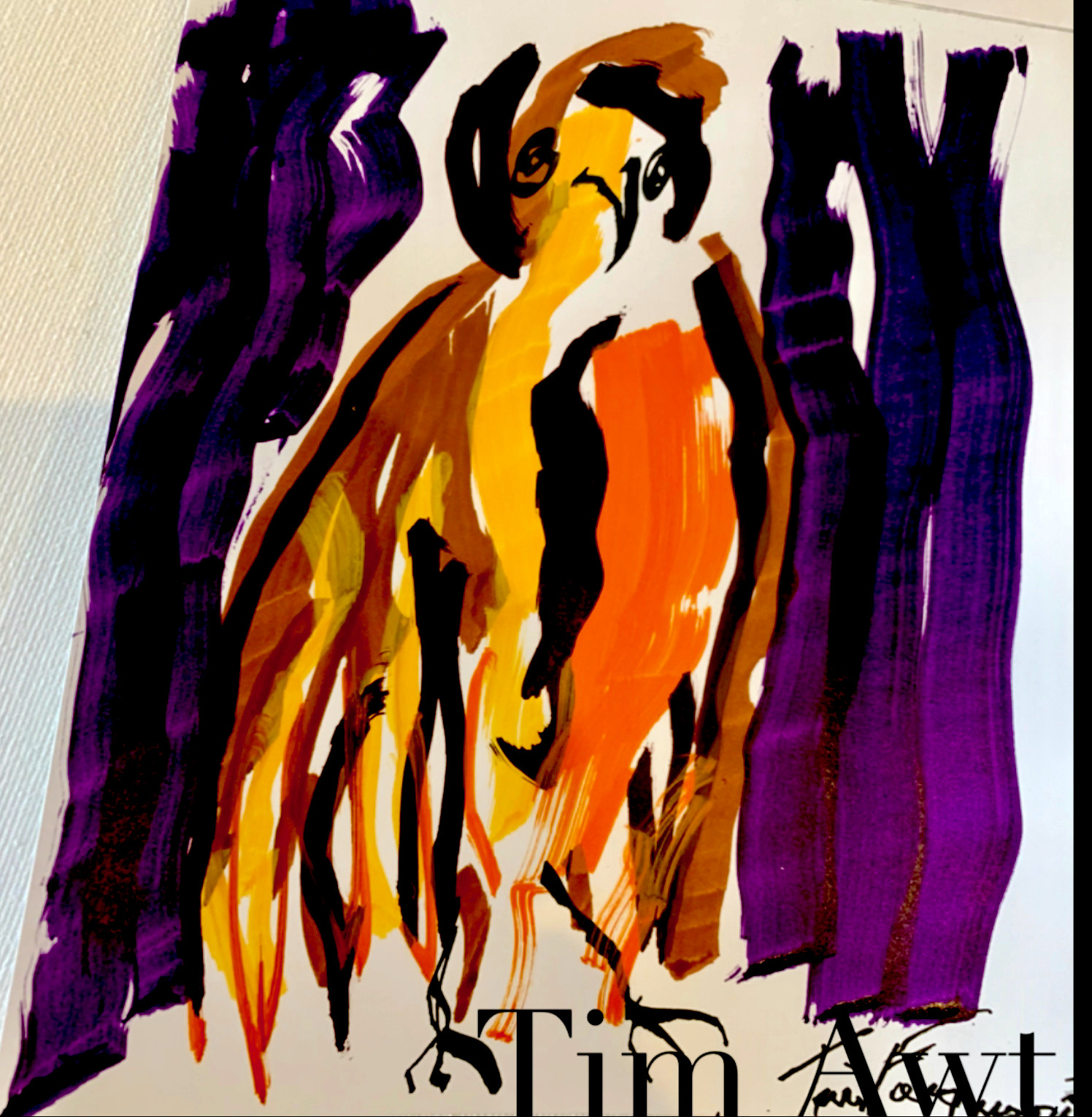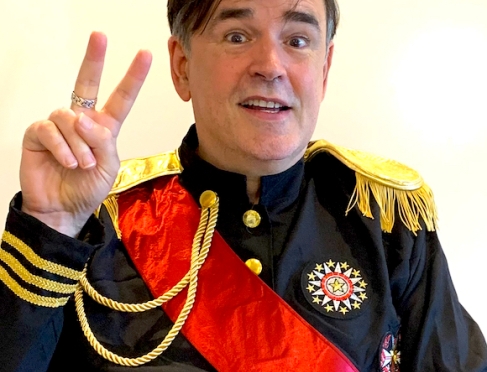Ambassador Profile - Tim Ferguson
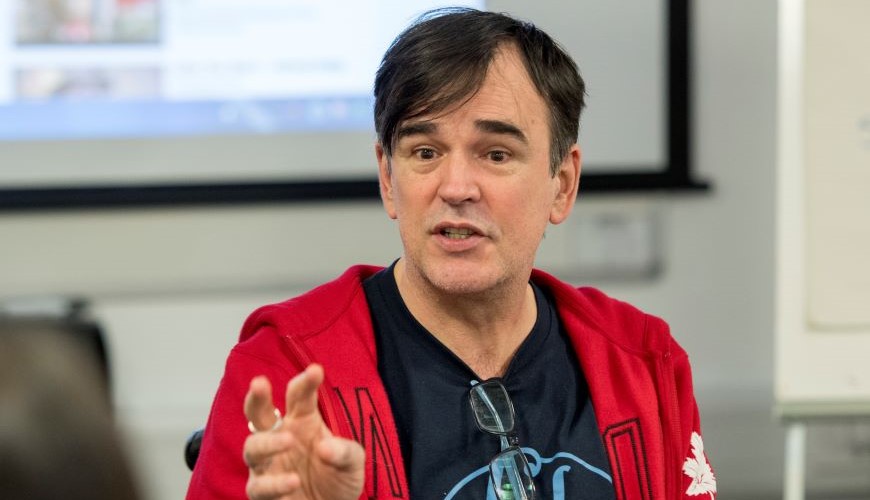
Welcome to the IncludeAbility Ambassador Profile series.
We caught up with widely acclaimed comedian, screenwriter, author, actor, comedy coach, advocate, and patron of MS Australia, Tim Ferguson.
About Tim
Tim is a member of comedy trio Doug Anthony Allstars (DAAS) (with Paul McDermott and Richard Fidler) who broke box office records on nine world tours. He has published books, comics, artworks, live recordings and the independent album ICON. Tim hosted a range of television shows including the Logie-winning Don’t Forget Your Toothbrush and the live satirical commentary show With Tim Ferguson (WTF). He's author of screenwriting manual The Cheeky Monkey-Writing Narrative Comedy.
Tim has toured with his shows Carry a Big Stick, Fast Life on Wheels, and performed his show Disability Rules! at the Adelaide Fringe.
Tim writes The Ferguson Report, a weekly news satire column in online newspaper The New Daily.
During the discussion, Tim spoke a little about his life, current interests, the importance of employment for people with disability, and a whole range of other topics including Donald Trump, identity politics, hairstyles, religion and AI - which we will have to save for another time.
Tim spoke (a lot) about his "absurdly beautiful and brilliant Canadian wife Stephanie" and how much he loves Canadians. "They are incredibly practical, smart, funny, and tough". Tim spoke about the Canadian Universities that "teach you to be funny", something that Australia doesn’t really have because "we are all so terribly, terribly serious".
Professionally Tim is finishing writing two books, teaching narrative comedy writing (which apparently is just a smart way of saying writing comedy stories) and is gearing up to make another funny comic movie which will, "raise a few eyebrows (and) scare a couple of horses".
Disability Rules!
Tim performed a live show called Disability Rules ("with an exclamation mark".)
Disability Rules! was the third part in a trilogy of shows about disability:
"Disability Rules! is actually about the rules people should obey when they’re dealing with our disability. So it’s not like saying, "Disability rules, man – yeah, go disability, it’s so cool". It’s basically a set of rules, like, stay the hell out of our parking spots."
Disability Rights
Tim spoke about his passion/outrage for disability rights including the speech that sparked his fury, delivered by the Former Disability Discrimination Commissioner Dr Ben Gauntlett. The speech outlined some of the statistics related to disability and employment in Australia.
"I was outraged. Like, how could this be? There are 4.4 million people with disability and more than 50% face chronic unemployment, which is just, beyond infuriating. It’s just downright offensive and I’m in the offensive business. I offend people for a living".
Tim spoke about employers and the education system:
"I know what’s offensive and what isn’t, and the negligence among corporations and employers, and in the education system that has gone on for so long is only now finally being addressed".
Tim also spoke about the movement in corporate Australia to hire more people with disability in a range of positions, and wanting to see more women with disability in boardrooms:
"People just say women and then that’s it. It seems to me that inclusion has to start including disability not as the last thing that gets mentioned. A large group of people, shouldn’t be an afterthought".
Tim went on to talk about the role of initiatives such as IncludeAbility:
"It’s why IncludeAbility is so exciting. It’s addressing the problem of a lack of awareness directly, but also giving people, corporations, and small businesses the tools for knowing how to hire people, how to conduct interviews with people with disability, where to get more information and support, and how to fund adjustments".
Humour
Throughout the conversation, Tim had us laughing almost continuously. Despite this, we discussed topics important and personal to all of us.
We asked Tim about the role of humour in breaking down barriers, and as a tool for difficult conversations.
Tim began by saying that "Bringing humour into a conversation about disability is best left for the person with the disability first".
Tim spoke about the importance of people with disability guiding the conversation, including setting the level to which they can laugh or make jokes about situations, and what they feel comfortable with.
He spoke about the fact that most people with disability have "worked out a couple of gags, and once that's done, there's sort of a level that's been set".
Although he warned...
"If you're an employer doing an interview, it's probably not a good idea to start with gags. Instead, if you are hiring someone and they have identified as having disability / disabled, you can say, ‘do you mind if we talk about your disability?’"
The workplace
Tim discussed the importance of workplaces where employees know they can sing out if they need a hand or are in trouble, and they feel comfortable to do so.
Often it’s employers or employees without disability that are nervous and feel uncomfortable about an employee with disability commencing, "But if you talk to anybody who has worked with people with disabilities, they’ll tell you that they are just like everybody else, and people are adaptable".
Tim spoke about the IncludeAbility website and resources available.
"Dealing with disability is a far simpler and easier process than people think once you know how to go about it. There are plenty of resources and people to assist you in the process - whether you're going for a job or you're giving one out".
Employees with disability
We asked Tim if he had any advice or tips for people with disability looking for a job, or looking to advance their career.
Tim spoke about his own experience with MS and the process of choosing to disclose/identify as having disability.
"If you have an invisible disability and you don't want to disclose it, then don't. Don't feel guilty about it if you're functioning perfectly well, but you have some kind of disability. You're perfectly free to keep it to yourself unless you think it might become a problem".
"For a long time I didn't tell anybody about my MS because the symptoms would come and go. They were invisible and didn't get in my way".
Tim spoke about the importance of making a decision.
"It's important to make a decision about bringing it up or not before you commence. Most employers will maintain confidentiality if you ask them to".
Reframing
Tim spoke about the way we view our disability.
"It is important not to think of your disability as a real negative, but just something that has to be taken into account. So you can say, well, you know, obviously I get around in a wheelchair and that has to be taken into account if we're going to travel or tour, or have meetings and so on".
"Once everybody knows that, then you know they can adapt. It's better to be optimistic about people's responses, because most of the time, if you're an interesting person, and if you can provide what people are looking for, hopefully we'll get to a point where, it will work out".
The movement
Tim spoke about the changing tide of disability employment in Australia.
"Most employers will be looking for people with disabilities, if only so they can get a bit of credibility. If we can turn things around in the next decade, and have more Dylan Alcott's rise to the top, be Australian of the year or whatever, then employers, will have a positive, or at least neutral reaction, to employment of people with disability".
"Part of my show Disability Rules, no, it's Disability Rules! is to say that I dream of a world where people just don't care. Part of my show is to tell people- if you're an employer and someone comes to you and says, well, I'm blind, I've got multiple sclerosis, autism, bipolar, and a parrot on my shoulder- I dream of a day when employers just say, ok I don't care about that, that's your problem. Can you do the job? Is there anything we need to do? Do you need any ramps, or somewhere for the parrot to sit?’’
Being true to ourselves
Tim spoke about a day where we can be ourselves, the way the world sees us doesn’t matter, we are all respected equally, and employers just make it work.
"So even though we are individuals, we just don't care how the world sees us, because we're just doing our own lives, and being true to ourselves".
It will all evolve, but I dream of a world where employers really just don’t care. It’s like, how are we gonna make it work? And how are you going to work? You’re hired!"
Technology
Just before Covid, Tim was working on a project in the arts with a group of people who were largely non-verbal and immobile. Tim spoke about the technology used to enable the group to make music and artwork. Using movement of the eyes and a piece of equipment to blow into, individuals were able to communicate with the computer and produce a piece of work.
"The transformation is extraordinary. In terms of people who aren't supposed to be able to do anything, give a couple of hours, and the next thing you know, you've got a picture or music, and it's just wonderful!"
"It shows that, in terms of employment, that people who are immobile and don't talk may still be able to contribute to a business".
It's about finding the right tools or the right assistance to be able to contribute. Technology is another way that has, and will continue to, transform employment for people with disabilities.
"The poster for my live show was me in a South American military uniform because we're taking over. We're kicking in doors and taking names. That's the next thing. I want people to be looking back at this period and say, that was the dark time before all these people with disabilities moved into corporations"

